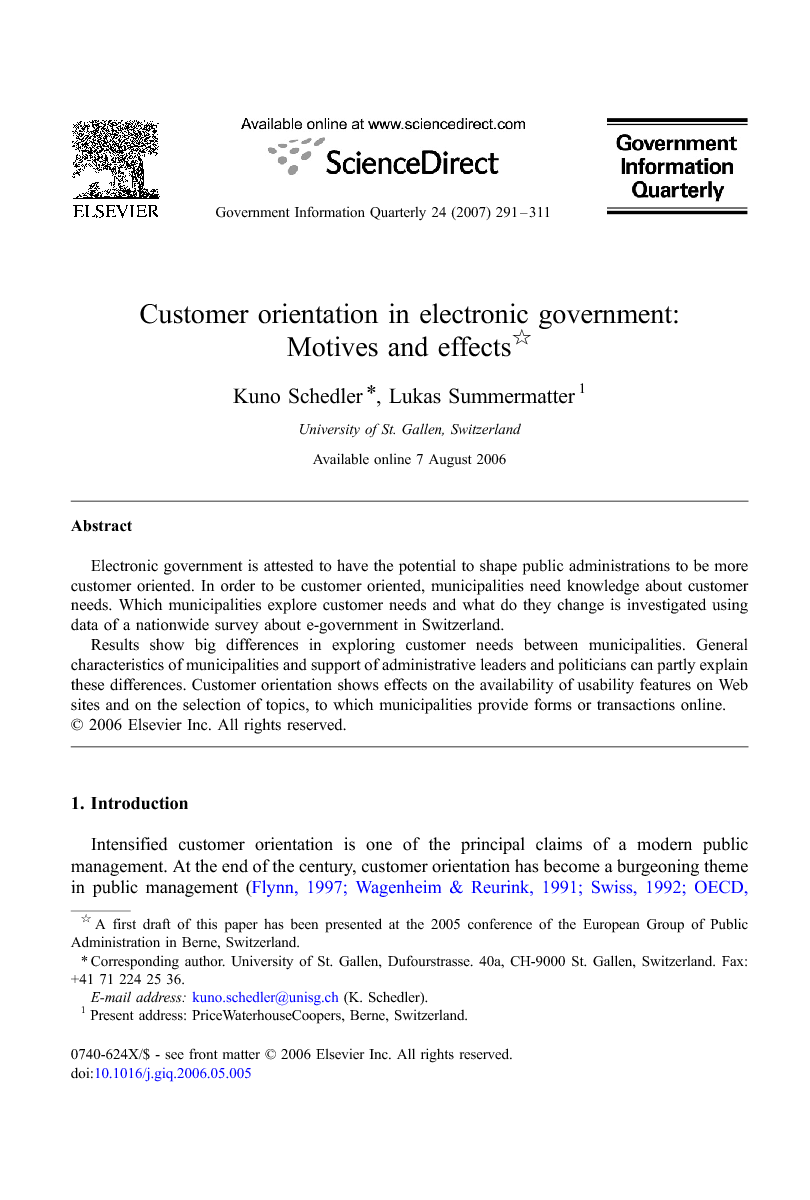ترجمه فارسی عنوان مقاله
مشتری مداری در دولت الکترونیک: انگیزه ها و اثرات
عنوان انگلیسی
Customer orientation in electronic government: Motives and effects
| کد مقاله | سال انتشار | تعداد صفحات مقاله انگلیسی |
|---|---|---|
| 20963 | 2007 | 21 صفحه PDF |
منبع

Publisher : Elsevier - Science Direct (الزویر - ساینس دایرکت)
Journal : Government Information Quarterly, Volume 24, Issue 2, April 2007, Pages 291–311
ترجمه کلمات کلیدی
مشتری مداری - دولت الکترونیک - انگیزه ها
کلمات کلیدی انگلیسی
Customer orientation, electronic government, Motives,

